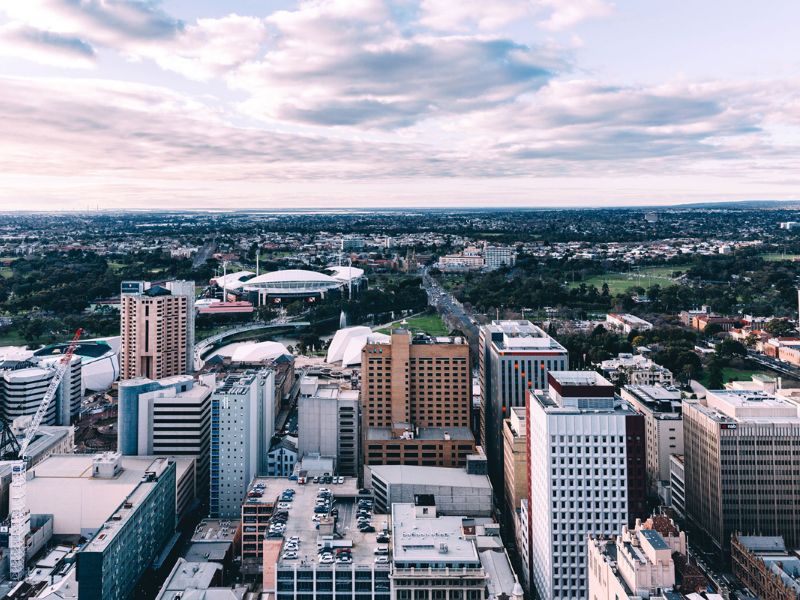A new $110 million smart satellites Cooperative Research Centre will be the “engine room” for the Australian space sector and help local companies take on the world, its CEO designate said.
The federal government unveiled the SmartSat CRC on Monday morning, with $110 million in cash funding – $55 million from participants matched by the government – and another $130 million-plus in in-kind investments, including people, infrastructure and satellite time.
The SmartSat CRC will feature a consortium of industry and research organisations including UniSA, Airbus, Bae Systems, UNSW and a range of space startups including Myriota and Fleet.

The CRC will be based on the same floor as the Australian Space Agency in Adelaide, but will be launching nodes in states and territories around the country, with the ACT and Western Australia already putting money on the table.
The $55 million provided to the CRC by the government is significantly more than it gave the space agency to get off the ground, with $26 million provided over four years.
The SmartSat CRC will be led by UniSA professor Andy Koronios, who is the CEO designate of the centre.
“We believe it will bootstrap the space sector. About five years ago we only had about a dozen companies that we would call space companies – that is now growing extremely fast and we feel we’ll provide a lot of support to actually build the space industry in Australia,” Professor Koronios told InnovationAus.com.
“This is the biggest space research collaboration in Australia’s history. We see ourselves as the R&D engine for the space agency’s objectives.”
The idea for the SmartSat CRC was formed during the Astronautical Space Congress in Adelaide in September 2017, led by UniSA and Nova Systems. The team quickly brought on board a number of large global companies and submitted an application to government in July last year having already raised $46 million from 60 partners.
By the time the group submitted the final application in December last year, it had more than 80 companies and organisations that had pledged $55 million in funding.
The centre will be focusing on three key areas: advanced communications, connectivity and IoT, advanced satellite systems, sensors and intelligence and next generation earth observation data services.
The CRC will aim to “ensure Australia can execute a technological leap-frog to deliver smart satellite systems that are Australian-designed, owned and operated and that will deliver the nation real-time connectivity, surveillance and sensing capability over land and sea”.
It will be working closely with local space startups to develop Australian technology and ensure it stays in the country.
“A lot of these startups have ideas but ideas alone will not make it unless they become different and can develop the IP. What we will be providing is trying to get the technologies we are building for them to commercialise so they can use the technology and then develop that into a business, into something they can export and use in another industry in Australia,” Professor Koronios said.
“By working with industry partners from the start the company itself will commercialise the idea, because we worked on it together and therefore we’ll be able to build that company into a bigger Australian and global company.”
Among its goals are to help more than 70 PhD students to graduate and 500 engineers, and encourage women and Indigenous Australians to pursue a career in STEM.
South Australia-based satellite startup Myriota is one of the participants involved in the CRC, and its co-founder and CEO Alex Grant said it will be “vital” for the local sector.
“The SmartSat CRC will support the brilliant minds that make up Australia’s industrial and academic research communities to collaboratively develop new technologies that enable new commercial products, addressing real world needs,” Dr Grant said.
“Securing a $245 million space industry-focused centre is a significant development, not just for UNiSA and South Australia, but also for Australia’s growing place in the international space community. It adds significant momentum to the recent announcement that the Australian Space Agency announcement will be based in Adelaide.”
A legal company will soon be established for the CRC, with research planning continuing while the relevant agreements are being signed with government, with a goal to have the centre up and running by July.
Funding announced during an election campaign is sometimes viewed suspiciously, but Professor Koronios said the cash has been committed and the scheme has strong bipartisan support.
“It’s a well and truly tested scheme, it’s got bipartisan support and all of this funding is committed anyway. It would be unprecedented for a new government to turn around and say they’re going to stop it. We don’t believe there’s any issue – we consulted with both parties anyway. If Labor gets in they usually are even stronger supporters,” he said.
Do you know more? Contact James Riley via Email.

